Brace for war in our time
Australians must face the fact that China is determined to invade Taiwan — and in a China-dominated region we won’t enjoy the freedoms we assume are our birthright.
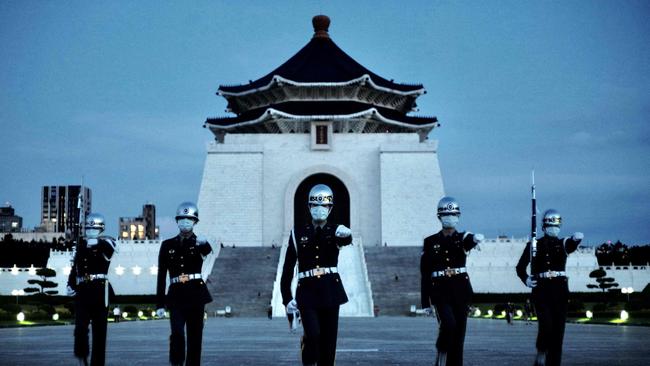
Despite our best efforts, we have yet to eliminate the scourge of war. The good news is that when they occur, most conflicts never escalate to the level of last century’s two ruinous conflagrations. We have all been accustomed to peace for so long that uber optimists believe major wars have been consigned to the dustbin of history.
But Taiwan’s emergence as a potential trigger for a hot war with global consequences is fundamentally changing perceptions. Earlier this year, The Economist described Taiwan as “the most dangerous place on Earth” – fearing that it could become the catalyst for war between the US and China.
Until now, defending Australia’s democratic values and sovereignty from the thickening ranks of autocrats has been largely bipartisan. This bipartisanship is starting to fracture over the crucial question of whether China’s unassailable but ageing leader, Xi Jinping, will chance his arm and take Taiwan by force to cement his legacy as the nation’s great unifier. Although not all would agree with Defence Minister Peter Dutton’s belief that it would be “inconceivable” for Australia not to join the US in military action to support Taiwan, the Coalition is broadly united around the need to buttress the island’s democracy.
But what would this mean in practice? Would we send a token force or fully commit to a fight with the formidable People’s Liberation Army?
Labor’s position is more fluid and uncertain. Paul Keating’s headline-grabbing contention that we shouldn’t get involved because Taiwan is not a vital Australian interest represents a significant strand of opinion within Labor.
Less so is his risible claim that China has never shown any sign of military aggression.
Tell that to The Philippines, Vietnam, Japan, India, Indonesia, Malaysia and Taiwan – all of which have been on the receiving end of Beijing’s belligerence.
With a federal election imminent, differences over Taiwan could easily degenerate into shouty exchanges, rhetorical overkill and serious political divisions that serve Beijing’s interests, not ours. The risk for the Coalition is that in attempting to paint Labor as being weak on national security, China is needlessly provoked and the government commits to a course of action on Taiwan without considering how a future crisis might begin or end.
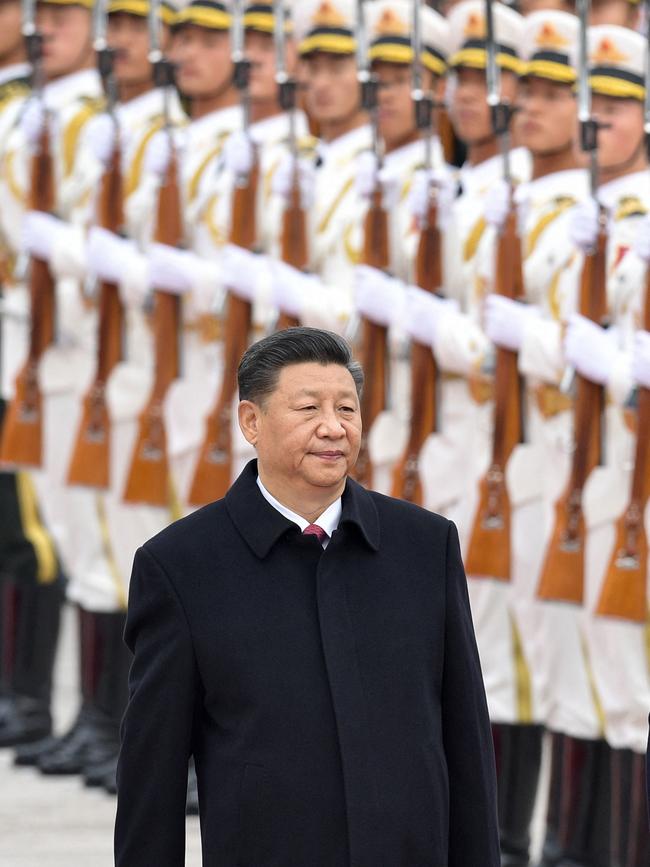
Labor wants to capture the moral and political high ground by casting itself as the voice of reason. But we may already be past the point where Australian diplomacy alone can do much to deter China from seizing the island.
All indications are that the Taiwan issue is coming to the boil. And it’s an even-money bet that the next federal government’s central preoccupation will be Taiwan not Covid, climate change or economic recovery. Geopolitics has a way of messing with the best-laid plans and crowding out other policy priorities.
Our response to the next Taiwan crisis should be determined by the answers to three questions. Is a Taiwan conflict likely and, if so, when? How would it play out? And what are the stakes for Australia and the region?
The consensus among Western intelligence professionals and defence officials is that Xi has drastically shortened his time frame for the reunification of Taiwan, a view shared by the Morrison government. In some respects, the battle for Taiwan is already under way. Witness the softening up of the island’s defences through economic and diplomatic pressure and regular People’s Liberation Army incursions into the air space around Taiwan.
The political cycle from 2024-27 is shaping to be an early window for an all-out invasion. China analyst John Garnaut believes that 2024 could be a particularly dangerous year because of the confluence of elections in Taiwan and the US. The return of an independently minded Democratic Progressive Party in Taipei and a more isolationist administration in Washington could create the opening Beijing seeks.
His consultancy group, Garnaut Global, warns that analysts “are underestimating the prospect of a war and its consequences, in part because they underestimate why altering the status quo is so attractive to Beijing, and why keeping it is so crucial for Washington”.
“We are already in the window for a possible war initiated by Beijing. Beijing will continue to hope that political warfare and subversion may allow it to suborn Taiwan without war, but Taiwan’s domestic politics continues to harden against Beijing’s intent.”
Early this year, Admiral Philip Davidson, the Hawaii-based head of the US Indo-Pacific Command, assessed that China could take military action against Taiwan in the next six years. Taipei’s new defence minister, Chiu Kuo-cheng, gave an even bleaker assessment on October 6, declaring that China already has the capability to “invade Taiwan now”. By 2025, it will reach “full capability”.
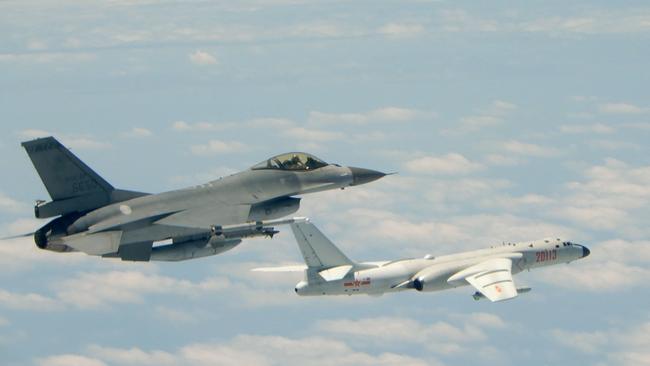
Since Mao Zedong seized power in 1949, Chinese Communist Party leaders have ritually asserted China’s sovereignty over Taiwan. But empowered by the enormous strides his generals have made in designing and equipping a force to subjugate the island, Xi has turned an aspirational goal into an achievable outcome.
With greater capability has come a worrying confidence that war can only strengthen the Communist Party’s rule in China, when once it was seen as a threat to the party’s power.
China expert Carice Witte says that a willingness to go to war is now regularly portrayed in China’s state-run media “as an expression of self-confidence and pride”.
The sheer scale of Beijing’s relentless, 20-year military build-up is a clear expression of intent. In 2020, China’s navy surpassed that of the US in battle force ships, with 355 to 297. And the gap in favour of China is set to widen with each passing year. The Australian navy can only look on with envy, as China’s Huludao shipyard turns out a new nuclear submarine every 15 months.
China’s navy is on track to have three combat-ready aircraft carriers by 2027, the minimum number the PLA considers necessary to take Taiwan and deter the US from intervening. By 2035, it will be able to deploy six carriers, matching the US strength in the Pacific.
There have been similar capability leaps in China’s nuclear force, including stealth bombers, strike aircraft, missiles, drones and the critical eyes and ears that allow the PLA to see, target and destroy hostile ships and aircraft.
Last year, Beijing’s fleet of reconnaissance and remote sensing satellites doubled from 80 to 200.
Perhaps the most revealing indicator that Xi is serious about taking Taiwan is the integration of China’s civilian and paramilitary ships into a potentially powerful invasion fleet that is even larger than the vast armada assembled by the allies for their assault on Normandy in June 1944.
By designing the vessels of the merchant navy, Coast Guard and fishing fleet to military specifications and making them interoperable, the PLA has been able to quadruple the tonnage of ships available to it.
The temptation will be to use this force, or eventually lose it.
The point is that China has invested trillions of dollars to assemble a force capable of invading and defeating Taiwan even if the US comes to its aid. This would have been unthinkable a decade ago. The rate of improvement in China’s military capabilities has been so profound that many experienced defence analysts believe the US can no longer guarantee Taiwan’s survival without risking major losses or escalating the conflict to a full-scale nuclear war.
Xi knows that neither of these unpalatable outcomes is likely to be seriously contemplated by Washington. This doesn’t mean there aren’t any realistic options for defending Taiwan. But sailing to the rescue in the Taiwan Straits with powerful aircraft carriers, as the US did during the last major crisis in 1996, is not one of them. It would be tantamount to suicide.
How a Taiwan crisis is likely to begin and play out is being intensely war-gamed by Australia, the US and Japan. While the results vary depending on the assumptions and time frames, five conclusions can be drawn with high levels of certainty.
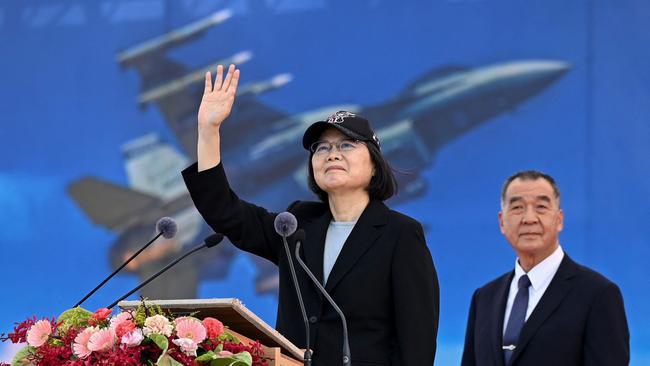
First, if a Taiwan conflict is fought tomorrow on China’s terms, the US would lose.
Second, Xi would prefer to win without going to war. So, he will focus initially on military and non-military grey-zone tactics short of armed conflict involving campaigns of intimidating military exercises, harassing patrols, intrusive surveillance and political interference in Taiwan’s domestic affairs. The aim is to compress Taipei’s reaction time and space for manoeuvre in the hope of wearing the government down to the point that it capitulates.
Third, if grey-zone tactics fail, China will have to invade and occupy Taiwan to impose its will. Successfully mounting a seaborne assault across the 130km-wide (at its narrowest point) Taiwan Strait against a resolute and entrenched foe is a high-risk military operation. Nothing quite like it has been attempted in the annals of military history. It would dwarf the D-Day Normandy landings, requiring the mobilisation of up to two million combat troops, a vast armada of ships and aircraft, and a massive logistical support. But China has the resources to do it.
Fourth, it will not be difficult for the practised polemicists of the Communist Party to manufacture an excuse to invade.
Fifth, the first mover usually wins. There will be enormous incentives for China to strike first to allow sufficient time to defeat Taiwan’s forces before the allies can mobilise their full might and respond.
Other options include sea blockades, cyber-attacks on critical infrastructure, and seizing Taiwan’s outlying islands such as the lightly defended and remote Pratas Islands in the north of the South China Sea.
None of this is risk-free for China. Any of these moves could quickly spiral out of control and precipitate a direct military confrontation with the US.
Australia can do more to prevent this outcome or shape the course of a conflict than critics allow. Keating’s disparaging dismissal of Australia’s capabilities as akin to a toothpick being flung against a mountain underestimates our strengths and ignores China’s weaknesses.
Dutton and Scott Morrison aren’t going to telegraph the government’s punches – but that doesn’t mean we don’t have any. Leveraging our military, diplomatic, intelligence, cyber and resource strengths in collaboration with the US and Japan would make China think twice about attacking Taiwan, by raising the cost of invasion.
A good start would be to develop stronger economic and political ties with Taiwan and support Taipei’s application to join the strategically important CPTPP free-trade agreement. We should also lobby for Taiwan’s inclusion into influential international institutions and forums from which it has been frozen out by China, such as the World Health Organisation.
Taking a leaf from Beijing’s playbook, we could use our own grey-zone tactics to deniably disrupt a Chinese invasion force and improve the resilience of vital allied intelligence eyes and ears in space. China would almost certainly seek to render them blind and deaf in the prelude to a strike on Taiwan.
Defence analyst Malcolm Davis says our ability to launch satellites from northern Australia could play a critical role in replacing US early warning and communications satellites destroyed, or damaged, by the PLA. Davis believes that northern Australia has the potential to become a key support area for allied forces not dissimilar to Darwin’s role in World War II, when the US and Australia were able to successfully blunt imperial Japan’s southward advance.
Any fight for Taiwan will be conducted in the shadowy cyber and undersea worlds. It makes no sense to send our handful of high-value ships and aircraft into the teeth of the storm, where they are unlikely to survive. Far smarter would be to contribute our world-class cyber and developing underwater capabilities to complement allied strengths.
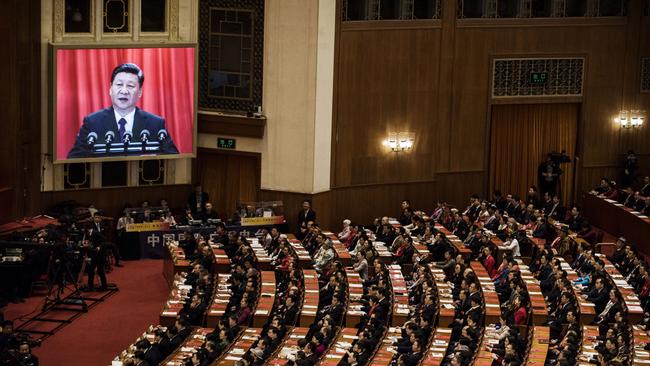
Media commentary is fixated on large, expensive submarines. But in future conflicts, our submarines will be mother ships to swarms of relatively cheap, agile underwater drones. Used intelligently, these drones could make our existing Collins-class submarines a force to be reckoned with by increasing their lethality while making them more survivable.
Those who argue that our vital interests are not engaged fail to understand the repercussions of a successful Chinese invasion of Taiwan. This, says Garnaut Global, “would have truly transformative consequences for the governance of Asia, unlike anything since Japan’s brief dominance of the region in the early 1940s”.
Among the most serious would be the possible shattering of the US alliance system in Asia, the bedrock of Australia’s security and prosperity for more than 75 years. It is hard to see how this could be avoided if allies believe that America no longer has the strength, or the will, to protect them, resist aggression, and underpin the fraying rules-based order.
Japan and South Korea could well decide to acquire their own nuclear weapons to counter China’s overwhelming conventional weapons superiority. So could a future Australian government, if it believes the alliance and the US nuclear umbrella are no longer credible.
Garnaut Global concludes that Taiwan’s fall would herald Beijing’s hegemony over much of Asia, supercharging its pursuit of pre-eminence globally. China “might not stop after swallowing Taiwan: revanchist powers aren’t known for having small appetites”.
David Lague and Maryanne Murray come to similar conclusions in a study for the Reuters newsagency. Control of Taiwan would “translate into a commanding strategic position in Asia, undermining the security of Japan and South Korea, and allowing China to project power into the Western Pacific”.
It would also “dramatically reinforce the Communist Party’s prestige at home and eliminate the island as a viable model of a democratic alternative to authoritarian Communist Party rule”.
And there is little doubt that Australia would come under even greater economic, trade and military pressure to toe Beijing’s line.
While we might not become a tributary state, in a China-dominated region we certainly won’t enjoy the freedoms and independence that Australians assume to be their birthright.
Alan Dupont is chief executive officer of geopolitical risk consultancy The Cognoscenti Group and a non-resident fellow at the Lowy Institute.




It is often said that there are only two certainties in life – death and taxes. But war and conflict must surely qualify as a third.